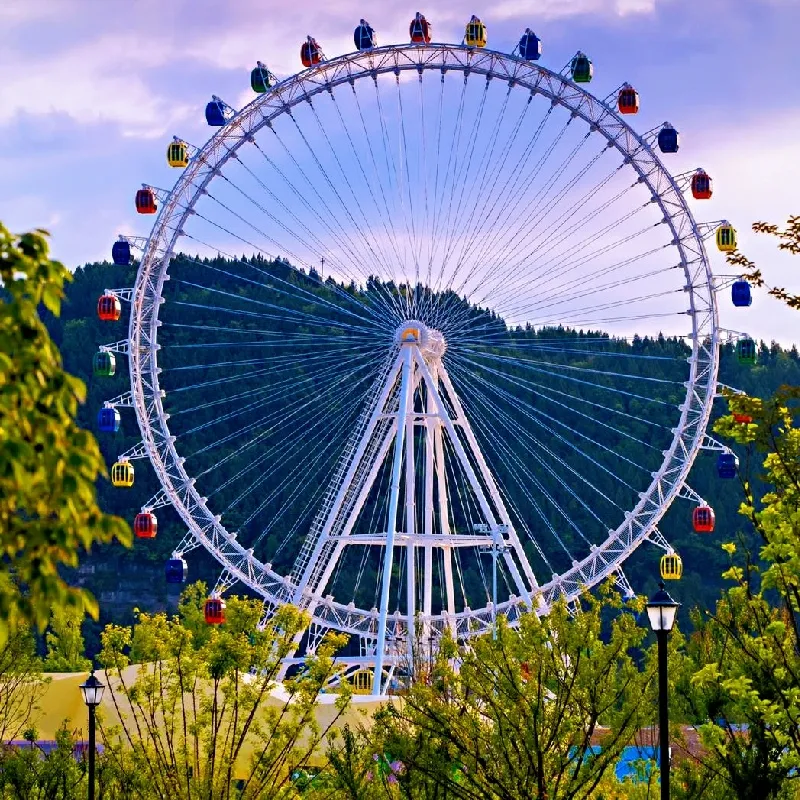- Albanian
- Arabic
- Belarusian
- Bengali
- Czech
- English
- French
- German
- Hebrew
- Hungarian
- Indonesian
- irish
- Italian
- Japanese
- kazakh
- Persian
- Russian
- Thai
- Uzbek
- Vietnamese
different roller coaster types
Exploring Different Roller Coaster Types An Exciting Journey Through Thrills and Innovation
Roller coasters have long been a staple of amusement parks, offering adrenaline-seeking riders a thrilling experience that combines speed, height, and gravity-defying twists. With various designs and technologies, roller coasters come in many types, each providing a unique ride experience. In this article, we'll explore some of the most popular roller coaster types, delving into their characteristics and the excitement they offer.
Wooden Roller Coasters
Wooden roller coasters are among the oldest and most classic designs, dating back to the late 19th century. They are built from wood, featuring a traditional design that includes hills, sharp turns, and drops. Wooden coasters are famous for their distinctive rickety ride and the sensation of speed. One notable example is the “Coney Island Cyclone,” a historic coaster that has been thrilling riders for decades. While they may not reach the heights of modern steel coasters, wooden coasters provide a nostalgic experience that continues to attract coaster enthusiasts.
Steel Roller Coasters
Steel roller coasters revolutionized the amusement park experience, introducing smoother rides and the ability to achieve higher speeds. Unlike wooden coasters, which rely on gravity and inertia, steel coasters use advanced engineering to incorporate inversions, loops, and corkscrews. One of the most famous steel coasters is “Millennium Force” at Cedar Point, known for its astounding height and speed. Steel coasters offer a wider variety of design possibilities, enabling thrilling elements such as vertical drops and zero-gravity rolls, making them a favorite among thrill-seekers.
Inverted Roller Coasters
Inverted roller coasters take the thrill a step further by featuring seats that are suspended below the track. This design allows riders to hang freely, experiencing a unique sensation as they flip and twist through loops and turns. Coasters like “Banshee” at Kings Island exemplify the excitement of inverted rides, where riders often soar through the air, feeling like they are flying. The lack of a track above them enhances the feeling of weightlessness, providing an exhilarating experience like no other.
different roller coaster types

Suspended Roller Coasters
Suspended roller coasters share similarities with inverted coasters, but with a key difference the cars swing side to side as they move along the track. This movement creates a dynamic ride experience, allowing riders to feel the thrill of banking turns and sudden drops in a more immersive way. One well-known example is “The Bat” at Kings Island, where the swinging motion adds an extra layer of excitement, making each ride unpredictable and thrilling.
Launch Coasters
Launch coasters eliminate the traditional lift hill and instead use powerful launch mechanisms to propel riders forward at incredible speeds. This type of coaster provides an adrenaline rush right from the start, often launching from 0 to 60 mph in just a few seconds. “Top Thrill Dragster” at Cedar Point is a prime example, featuring a hydraulic launch that sends riders straight up a 420-foot tower before plummeting back down. Launch coasters offer a unique experience by combining rapid acceleration with extreme heights.
Water Coasters
Water coasters combine roller coaster thrills with water ride elements, offering a refreshing twist to the traditional experience. These coasters utilize water currents to propel riders up and down hills, often culminating in a splashdown finale. “Jurassic Park River Adventure” is a great example, where the thrill of the coaster is enhanced by the excitement of water. Riders experience the best of both worlds, enjoying both the rush of a roller coaster and the cool splash of a water ride.
Conclusion
From the classic wooden coasters to the innovative launch and water coasters, the variety of roller coaster types offers something for everyone. Each design provides a unique blend of thrill, excitement, and adventure, making roller coasters a beloved attraction at amusement parks around the world. As technology continues to evolve, we can only imagine the future innovations that will shape the roller coaster experience, continually pushing the boundaries of thrill and excitement for generations to come.
-
Flume Ride-Hebei Zhipao Amusement Equipment Manufacturing Co., Ltd.|Thrilling Water Attraction&Customizable DesignJul.30,2025
-
Flume Ride - Hebei Zhipao Amusement Equipment | Water Coaster, Thrilling DescentJul.30,2025
-
Flume Ride - Hebei Zhipao | Thrilling Water AttractionJul.30,2025
-
Flume Ride: Thrilling Water Attraction by Hebei Zhipao|Log Flume Manufacturers&Flume Ride DesignJul.30,2025
-
Flume Ride-Hebei Zhipao Amusement Equipment Manufacturing Co., Ltd.|Thrilling Water Coaster, Safe DesignJul.30,2025
-
Flume Ride-Hebei Zhipao Amusement Equipment Manufacturing Co., Ltd.|Thrilling Water Attraction, Safe DesignJul.30,2025
